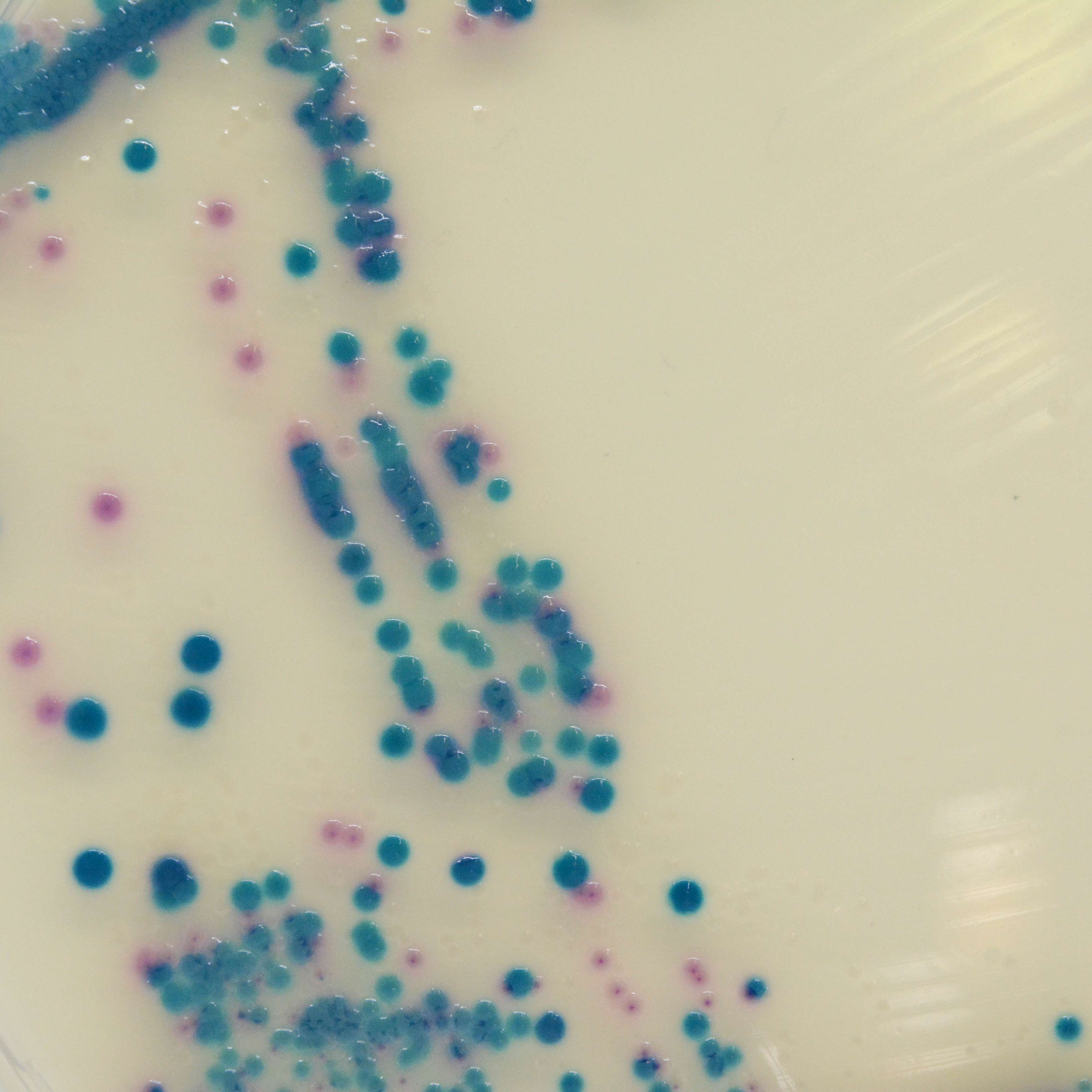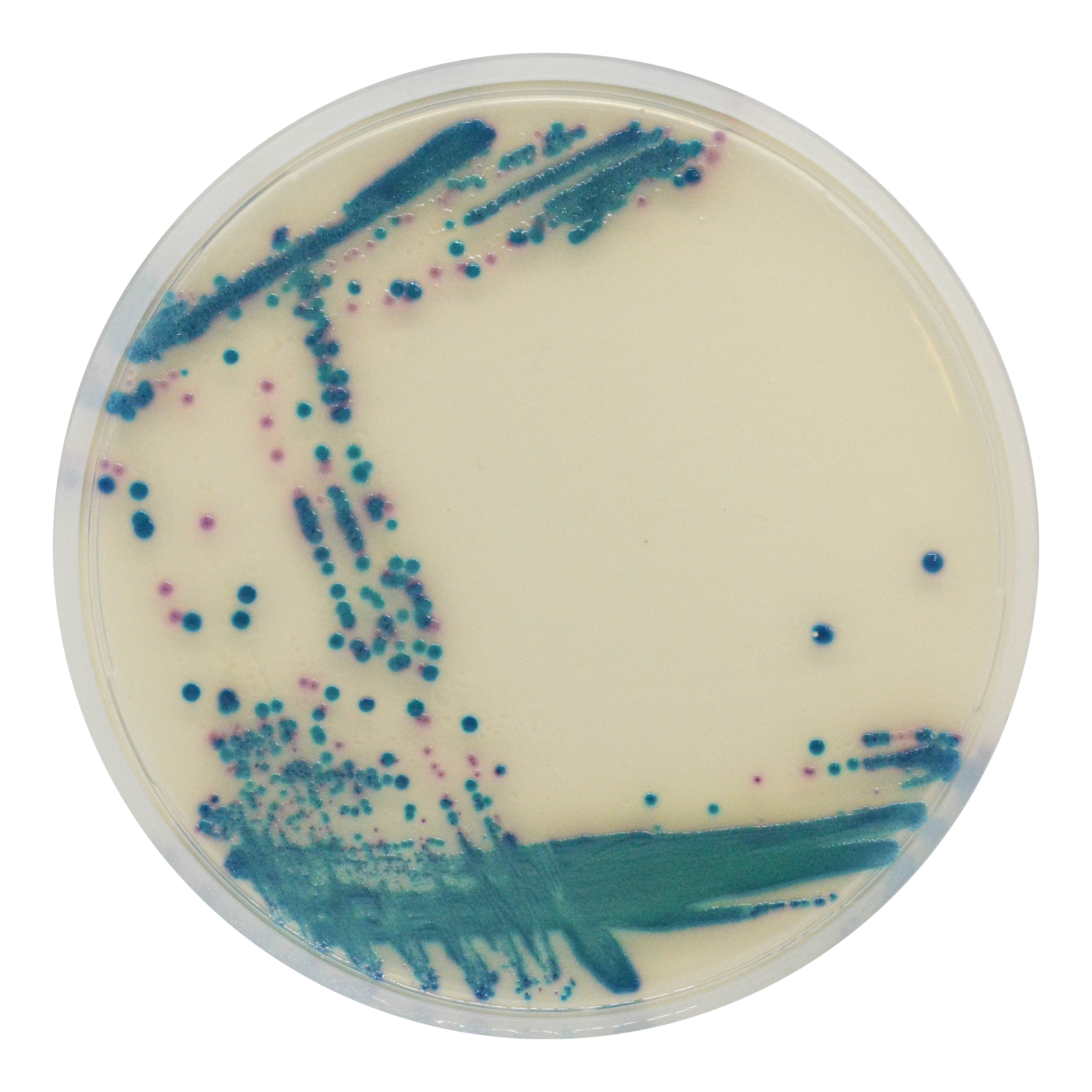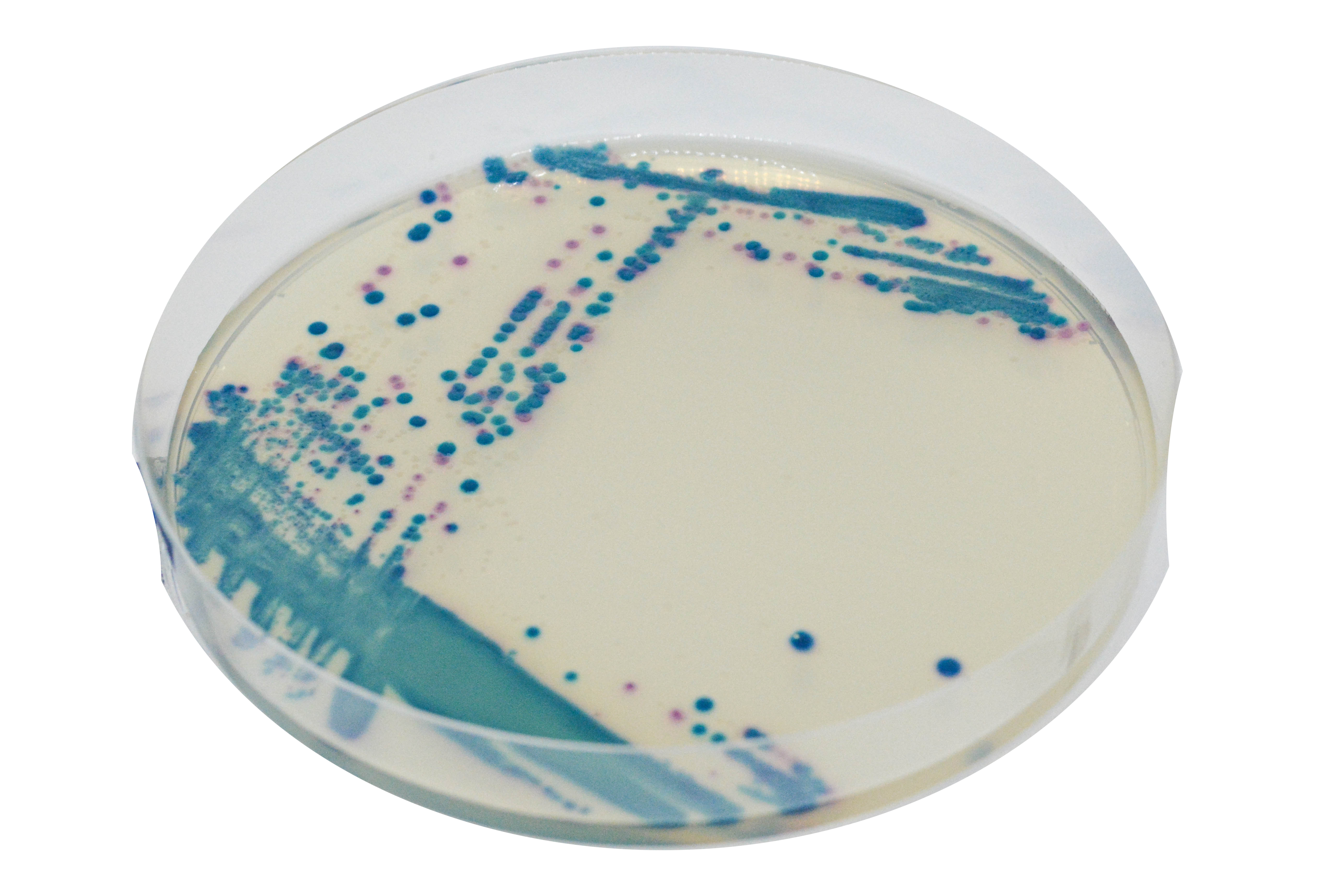Description
Colonies Appearance
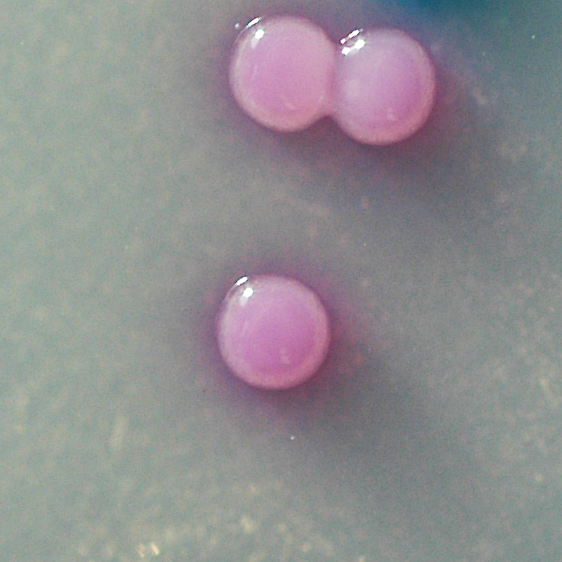 <img class="vce-single-image" src="https://chromagar.agencestudionet.com/wp-content/uploads/2021/11/ecoli.png" width="300" height="300" alt="C3GR ecoli" title="C3GR ecoli" />
<img class="vce-single-image" src="https://chromagar.agencestudionet.com/wp-content/uploads/2021/11/ecoli.png" width="300" height="300" alt="C3GR ecoli" title="C3GR ecoli" />
E. coli ESBL
dark pink to reddish
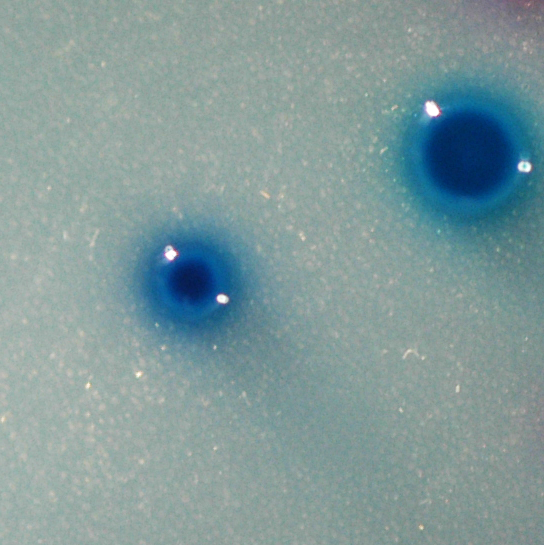 <img class="vce-single-image" src="https://chromagar.agencestudionet.com/wp-content/uploads/2021/11/klebsiella.png" width="300" height="300" alt="C3GR klebsiella" title="C3GR klebsiella" />
<img class="vce-single-image" src="https://chromagar.agencestudionet.com/wp-content/uploads/2021/11/klebsiella.png" width="300" height="300" alt="C3GR klebsiella" title="C3GR klebsiella" />
Klebsiella, Enterobacter,
Citrobacter ESBL
metallic blue (+/- red halo)
 <img class="vce-single-image" src="https://chromagar.agencestudionet.com/wp-content/uploads/2021/11/proteus.png" width="300" height="300" alt="C3GR proteus" title="C3GR proteus" />
<img class="vce-single-image" src="https://chromagar.agencestudionet.com/wp-content/uploads/2021/11/proteus.png" width="300" height="300" alt="C3GR proteus" title="C3GR proteus" />
Proteus ESBL
brown halo
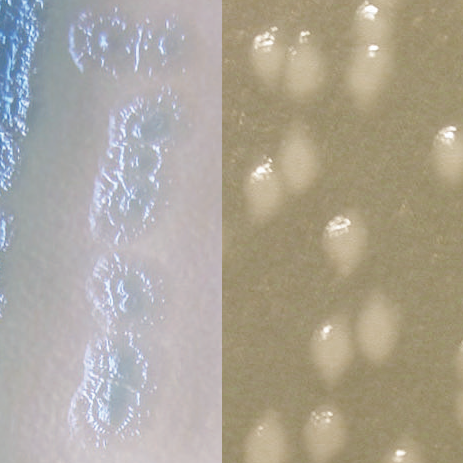 <img class="vce-single-image" src="https://chromagar.agencestudionet.com/wp-content/uploads/2021/11/acinetobacter.png" width="300" height="300" alt="" title="C3GR acinetobacter" />
<img class="vce-single-image" src="https://chromagar.agencestudionet.com/wp-content/uploads/2021/11/acinetobacter.png" width="300" height="300" alt="" title="C3GR acinetobacter" />
Pseudomonas ESBL
translucent cream to blue
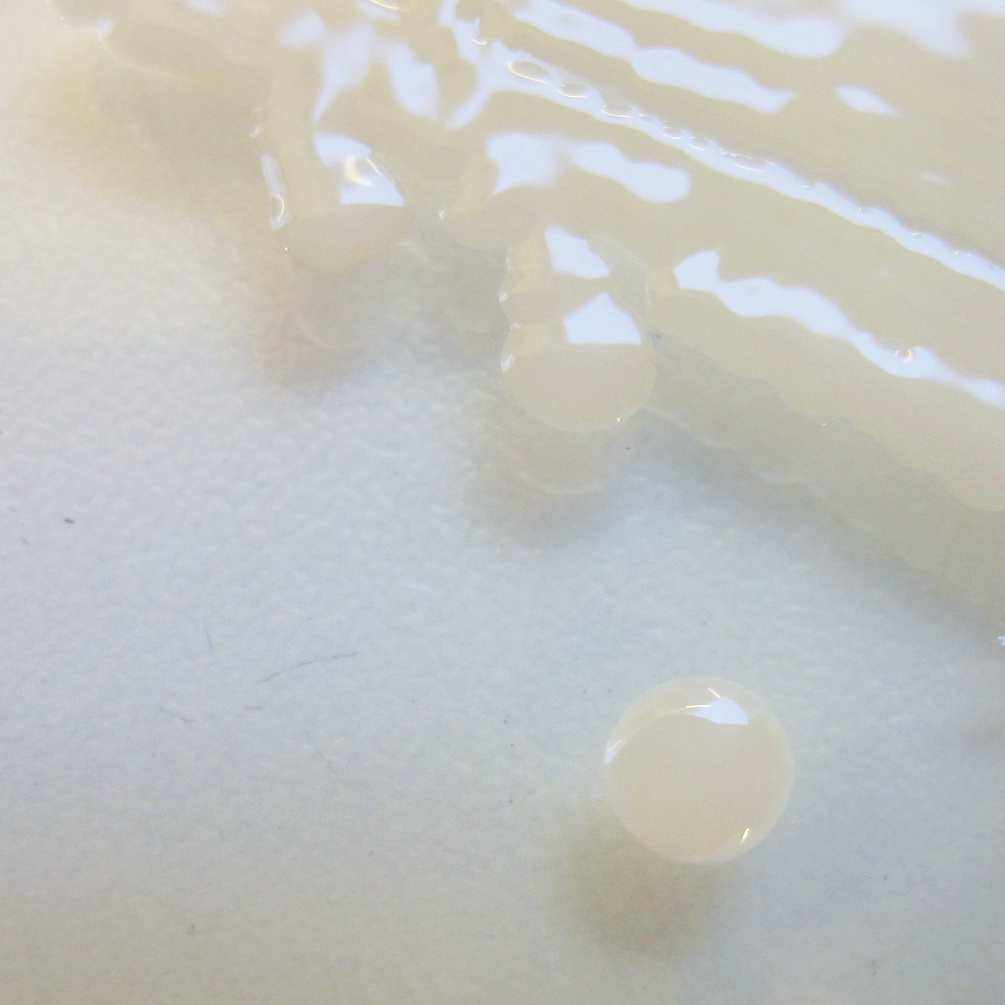 <img class="vce-single-image" src="https://chromagar.agencestudionet.com/wp-content/uploads/2021/11/pseudomonas.png" width="300" height="300" alt="C3GR pseudomonas" title="C3GR pseudomonas" />
<img class="vce-single-image" src="https://chromagar.agencestudionet.com/wp-content/uploads/2021/11/pseudomonas.png" width="300" height="300" alt="C3GR pseudomonas" title="C3GR pseudomonas" />
Acinetobacter ESBL
cream, opaque
Performance
ESBL (Extended Spectrum β-Lactamases) are enzymes that mediate resistance to penicillins, extended-spectrum third generation cephalosporins (C3G) and monobactams. ESBL-producing Enterobacteriaceae started to appear in the 1980s, and have since emerged as some of the most significant hospital-acquired infections with Escherichia coli and Klebsiella spp. being the main actors, but other Gram-negative species have also been observed. Emergence of ESBL-producing isolates has important clinical and therapeutic implications:
- Resistance determinants for ESBL production are carried on plasmids that can be easily spread from organism to organism.
- The spread of resistance toward extended-spectrum cephalosporins may lead to increased prescription of more broad-spectrum and expensive drugs.
- These resistant isolates may escape detection with routine susceptibility testing performed by a clinical microbiology laboratory, which can result in adverse therapeutic outcomes.
Therefore, the early detection of ESBL-producing bacteria carriers is important to minimise their impact and the spread of infections and customise therapeutic patient treatment.
CHROMagar™ ESBL allows the detection of ESBL-producing bacteria while inhibiting the growth of other bacteria, including most of those carrying AmpC type resistance. This is an important feature because intrinsic AmpC resistance has less epidemic relevance, but often leads to ESBL false positive reading in the classical testing methods.
Intended Use :
CHROMagar™ ESBL is a selective and differential chromogenic culture medium, intended for use in the qualitative direct detection of gastrointestinal colonization with Extended-spectrum-beta-lactamase-resistant Enterobacteria (ESBL) to aid in the prevention and control of ESBL in healthcare settings. The test is performed with rectal swab and stools from patients to screen for ESBL colonization. Results can be interpreted after 18-24 h of aerobic incubation at 35-37 °C.
The medium can also be used as an early warning indicator for diagnostic tests of infections to signal the possible presence of multi drug-resistant bacteria. This use does not replace the institution’s protocols.
CHROMagar™ ESBL is not intended to diagnose infection caused by ESBL producers nor to guide nor monitor treatment for infections. A lack of growth or the absence of colonies on CHROMagar™ ESBL does not preclude the presence of ESBL-producing bacteria. Further identification, susceptibility testing, and epidemiological typing is needed on suspect colonies.
1. Fast results: Detection after overnight incubation.
4. Time and workload savings: Direct Culture from specimen. There is no need of a selective pre-enrichment.
2. Species Differentiation thanks to the chromogenic performances of supplemented CHROMagar™ Orientation. Indeed, the product is composed of a powder base CHROMagar™ Orientation and a supplement to enhance ESBL-producing bacteria.
5. Flexibility: CHROMagar™ ESBL is supplied with a more than 18 months shelf-life. This allows flexibility of use, whether in an epidemic situation with many patients to screen, or whether for random surveillance of cultures.
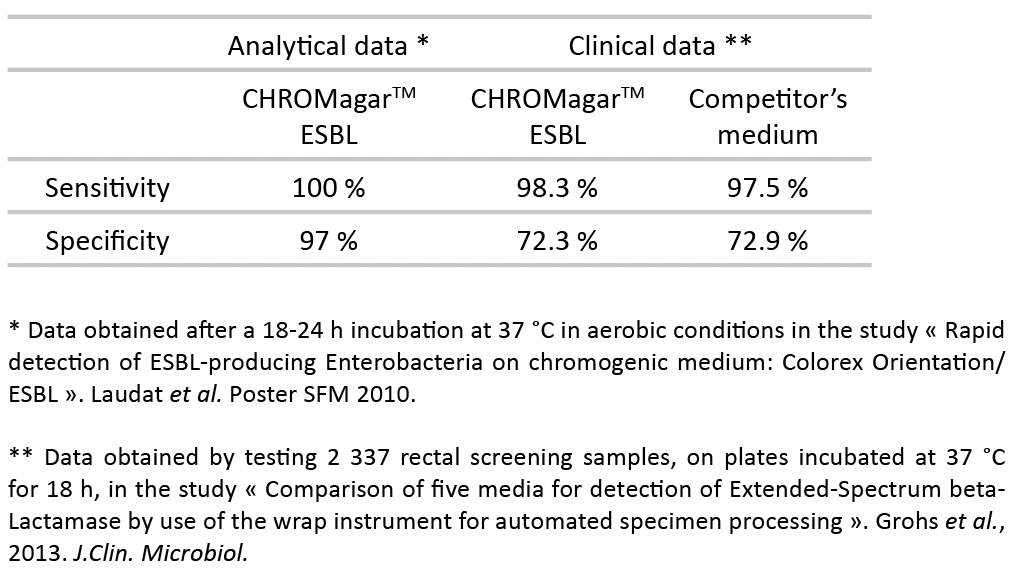 <img class="vce-single-image" src="https://www.chromagar.com/wp-content/uploads/2022/05/Data-EN-3.png" width="1016" height="580" alt="" title="Data EN" />
<img class="vce-single-image" src="https://www.chromagar.com/wp-content/uploads/2022/05/Data-EN-3.png" width="1016" height="580" alt="" title="Data EN" />
Composition
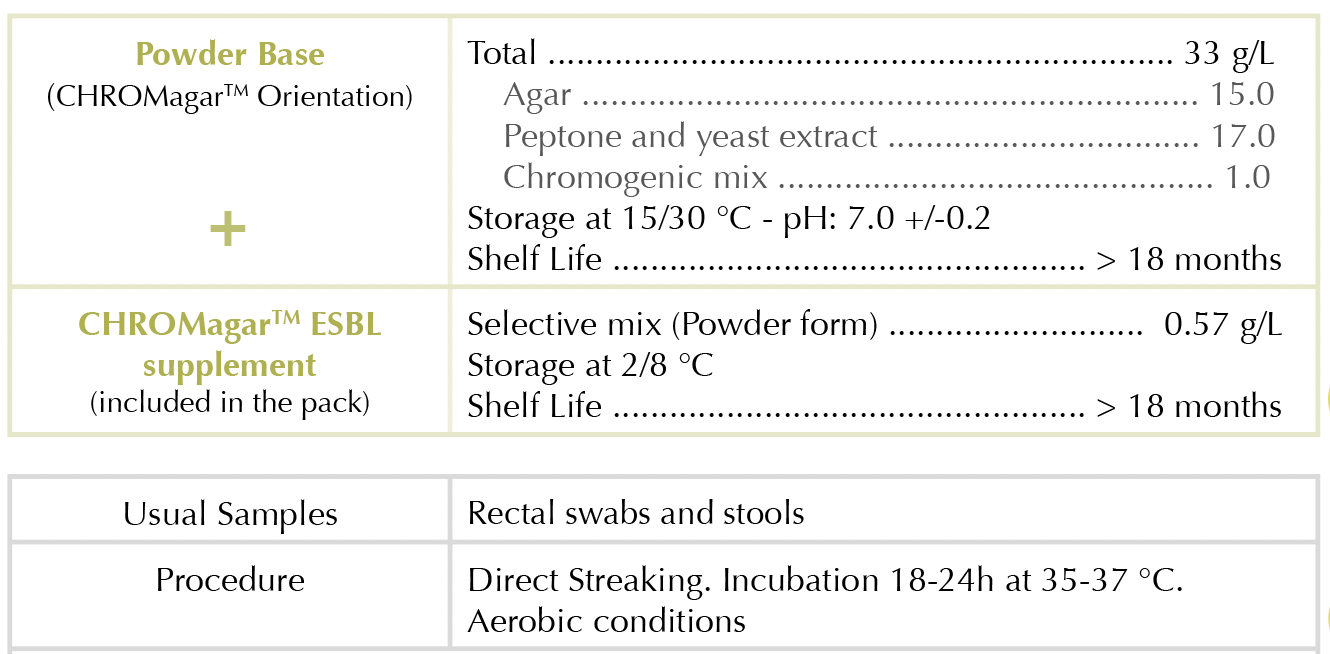 <img class="vce-single-image" src="https://www.chromagar.com/wp-content/uploads/2022/05/Composition-EN-3.png" width="950" height="460" alt="" title="Composition EN" />
<img class="vce-single-image" src="https://www.chromagar.com/wp-content/uploads/2022/05/Composition-EN-3.png" width="950" height="460" alt="" title="Composition EN" />



